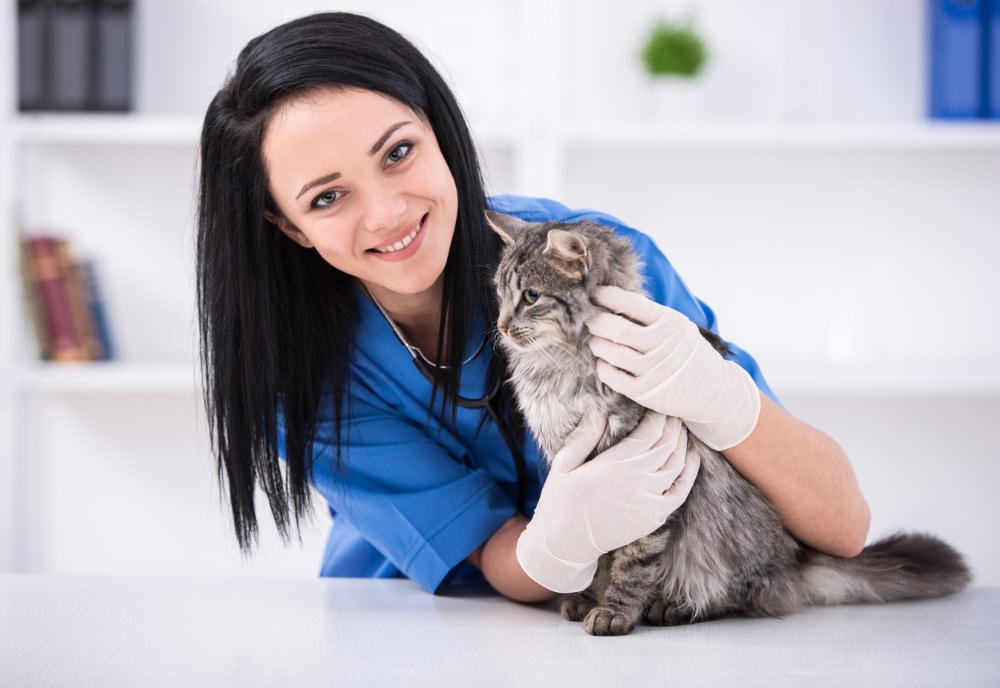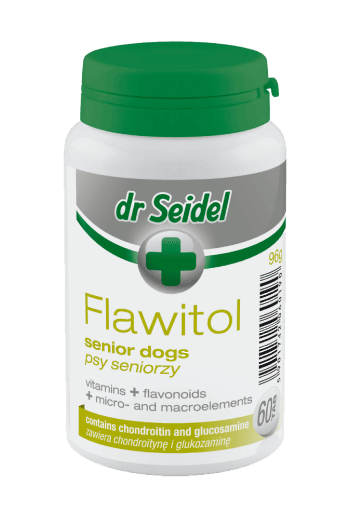Annual check-up visit to a vet
Annual check-up visit to a vet
“Prevention is better than cure”, as stated by wise words of the Hippocratic Oath. Hippocrates was a forerunner of prevention who lived more than 2,400 years ago. Following this principle, it is recommended that your pet undergo a prophylaxis tests on a check-up visit to a vet, at least once a year. This is extremely important for pets as their time passes much faster. An annual test for your pet is equivalent to a human periodic check made every 5-7 years.

Below, you can find the tests your dog or cat may undergo at the annual check-up:
— Basic blood tests (morphology and biochemistry) – it checks the number of blood cells, and allows to detect inflammation in the body and the condition of individual organs, such as liver or kidneys.
— Specialised blood tests, such as SDMA biomarker which allows early detection of kidney failure, TLI which allows to test extrasecretory pancreatic failure, or thyroid hormones to be examined when our pet loses or gains weight and has a dull or rough coat.
Detection of an increase in these parameters allows early treatment or diet modification, i.e. applying low-protein diet in the case of renal failure or low-fat diet in the case of pancreatic diseases.
— Dental condition control: gingivitis and plaque are absolute indications for intervention and scaling (i.e. removing plaque), removal of bad teeth and the use of preparations which delay the build-up of plaque, e.g.: Dr Seidel Deo Spray or Deo Paste. Otherwise, bacteria that inhabit the oral cavity can penetrate other organs and cause, for example, cardiovascular diseases.
— Annual rabies vaccination and vaccination against other infectious diseases every 3 years.
— Parasitic prophylaxis: faecal examination to precisely identify internal parasites, the use of the targeted preparation and prophylaxis against ectoparasites, e.g. the use of Sabunol collars against fleas and ticks, are recommended;
— Control of anal glands and ears, shortening of claws.
— Evaluation of all skin lesions: their growth rate, colour, location – lesion biopsy and removal if necessary. You should pay attention to all skin lesions and in the case of disturbing symptoms, rapid growth rate, or colour changes – report it to the vet at the check-up visit.
— Ultrasound examination, if necessary. This is a very helpful tool to assess organs of the abdominal cavity, digestive system, excretory system (bladder, kidneys) and reproductive system. If the female has not been castrated, an ultrasound examination can detect possible problems with the uterus or ovaries.
— In pets with suddenly decreased fitness level , it is advised to perform a heart echo test to exclude cardiovascular diseases.
— BCS (Body Condition Assessment) is of great importance in the prevention of overweight and consequently obesity and related diseases, e.g. diabetes. Many pets are overfed by their owners and during the examination, it is not possible to feel the bone structures of the ribs. In pets with normal body weight, they are felt without much pressure. With age, you will also need to modify their diet and add supplements, such as Flawitol artro or Flawitol senior, to support their joints.
Preventive check-ups are very important as they can save pets unnecessary suffering as a result of disease and often help to prolong the lives of our pets.
Veterinary Surgeon Monika Wieczorek-Smolarek
2 октября 2023






